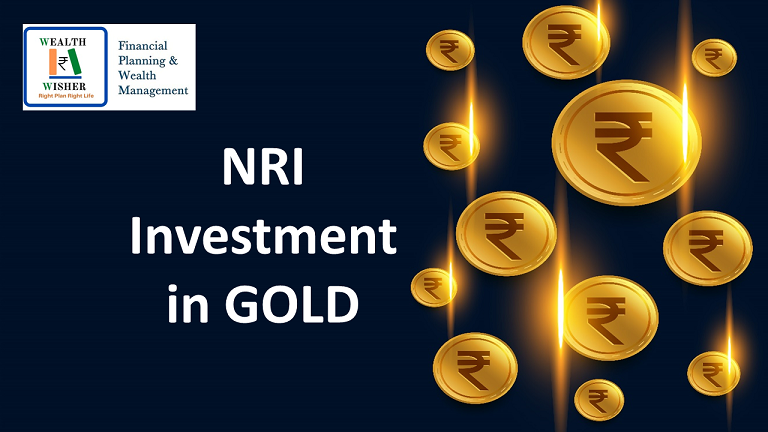Why NRI Investment in Gold is a good option?
Gold has been a popular investment option for individuals. NRI Investment in Gold seeking to preserve and grow their wealth. Non-resident Indians (NRIs) also show interest in investing in gold due to its ability to act as a hedge against inflation and economic uncertainties.
Gold is always in demand because…
- We have been told every currency can burst but not gold. You can cross borders with gold etc … etc… stories but they bring a sense of stability.
- Gold is a finite resource… very limited quantity remains under the earth. So price follows scarcity. Hence a good investment.
- Usage wise India China & Africa tops and hence requirement will always be there. We find this trend of gifting gold reducing now.

So, NRIs also want a piece of this gold story. But can they buy gold … yes of course. Here is how they can.
This article will inform in brief regarding the NRI investment in gold while adhering to the rules and regulations applicable to their NRI status.
Consider below pointers for NRI Investment in Gold
-
Understanding Different Forms of Gold Investment:
Before indulging in any investment process, NRIs should familiarize themselves with the various forms of gold investment available to them. The most common options include physical gold such as jewelry and coins, gold ETFs (Exchange-Traded Funds), Gold mutual funds, Gold savings schemes, and sovereign gold bonds.
-
Choose the right investment vehicle:
Each form of gold investment has its advantages and disadvantages. To select the most suitable option, NRIs need to assess their financial goals, risk tolerance investment horizon, etc. There are some, who opt for physical gold because of some sentimental reasons, while others may opt for gold ETFs or sovereign gold bonds for convenience and liquidity.
-
FEMA Regulations:
The Foreign Exchange Management Act (FEMA) governs NRI investments in India. NRI must ensure compliance with FEMA guidelines, which may restrict the amount and type of gold investments they can make. As per FEMA, NRIs are allowed to invest in gold ETFs and sovereign gold bonds, subject to certain terms and conditions.
-
Gold ETFs for NRIs:
Without holding physical gold, Gold ETFs are a convenient way for NRIs to invest in gold. Gold ETFs are traded on stock exchanges, making them highly liquid and easily tradable. NRIs can invest in gold ETFs through their NRO (Non-Resident Ordinary) or NRE (Non-Resident External) accounts.
-
Sovereign Gold Bonds (SGBs) for NRIs:
SGBs are government-issued securities denominated in grams of gold. They have a maturity period and offer interest too, making them a unique investment option. The interest earned on SGBs is taxable, but capital gains arising at maturity are exempt from tax. NRIs cannot invest in SGBs through their NRO accounts.
-
Implications of Tax:
NRI should be aware of the tax implications of their gold investments. For example, income generated from gold ETFs and gold mutual funds is subject to taxation in India while sovereign gold bonds enjoy tax exemptions on capital gains at maturity. To understand their tax liabilities both in India and in the country of their residence, NRIs should consult with a tax advisor regarding the same.
-
Fund Repatriation:
NRIs should plan their investments considering the repatriation of funds when they need to liquidate their gold holdings. Investments through NRE accounts allow full repatriation of funds, while investments through NRO accounts have certain restrictions.
Conclusion
NRI Investment in gold can be a valuable addition to an NRI investment portfolio, offering diversification and safety during uncertain and unpredicted economic times. NRIs should carefully assess their investment options, understand the applicable regulations, and consider the tax implications before making their investment decisions.
NRI should take financial advice from the well knowledgeable financial advisor or wealth manager, who is experienced in NRI investments, as they can prove beneficial in navigating the complexities of NRI investment in gold.








